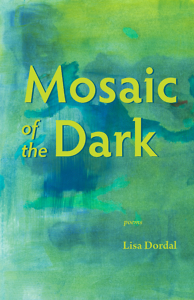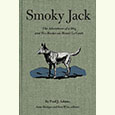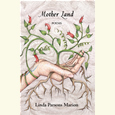To Call Forth By Noticing
For Nashville poet Lisa Dordal, paying attention is a kind of prayer
It’s difficult to make a poetics out of forgiveness, but that’s what Lisa Dordal accomplishes in her new collection, Mosaic of the Dark. Beneath her poems’ crystalline, unmottled veneers, subtle violences are perpetrated in the name of love and fear, carried out by family and near strangers.
 In many ways, Dordal’s poems are reminiscent of Sharon Olds’s early work: they are less gaudy with melodrama, less driven by gruesome detail, but just as desperate to reach a measure of understanding. In “Survival,” the title poem of the central section of the book, a simple detail like “a father’s borrowed cologne filling the air between us,” the scent associated with a teenage boy’s unwanted advance, is both damning and full of compassion in its accuracy. When Dordal’s poems indict, their shape and music are always resolving towards forgiveness.
In many ways, Dordal’s poems are reminiscent of Sharon Olds’s early work: they are less gaudy with melodrama, less driven by gruesome detail, but just as desperate to reach a measure of understanding. In “Survival,” the title poem of the central section of the book, a simple detail like “a father’s borrowed cologne filling the air between us,” the scent associated with a teenage boy’s unwanted advance, is both damning and full of compassion in its accuracy. When Dordal’s poems indict, their shape and music are always resolving towards forgiveness.
Mosaic of the Dark confronts aggressions against women and is arriving at a timely cultural moment. These poems are at their best when they consider instances of violence too subtle and ordinary to bear the name. The threat of harm shadows a gay couple traveling in the South—a portion of the country the poet loves and calls home—forcing them into a routine of lies.
But even in this hostile landscape, poetry is everywhere, lodged in places you wouldn’t expect to find it, singing in the quotidian writing that litters our living, whether it’s the words on paper scraps from a mother who was an inveterate passer of notes, or names and accusations carved into a pizzeria table, or a hand-written record of provenance taped to the underside of an inherited piece of furniture, or the inevitable slurs on a bathroom wall. Dordal writes of “invisible lines of force,” the shaping and disfiguring pressures at work on all of us, understanding how “the past / is a fine skin that does not protect,” a scrim as delicate as paper, invariably scrawled with words.
 Mosaic of the Dark has a theological depth which shouldn’t be surprising: Dordal holds both a Master of Divinity and a Master of Fine Arts in creative writing from Vanderbilt University, and in these poems it’s hard to tell which vocation won out or even if they’re separate. Among the issues Dordal is well equipped to take up is how the practice of religion and the discipline of art can be both redemptive and a means of oppression.
Mosaic of the Dark has a theological depth which shouldn’t be surprising: Dordal holds both a Master of Divinity and a Master of Fine Arts in creative writing from Vanderbilt University, and in these poems it’s hard to tell which vocation won out or even if they’re separate. Among the issues Dordal is well equipped to take up is how the practice of religion and the discipline of art can be both redemptive and a means of oppression.
In “Commemoration,” a visiting poet in a writing class tries to make every student write his poem rather than their own, just another coercion. The scene serves as a frame story for a poem about a youth uncomfortably playing the role of Mary in a Christmas pageant. The performances—Christian drama and workshop screed—form a diptych exposing the dark edges of the way institutions preserve their power structures as they seek to illuminate. Both the writing workshop and the religious pageant, which ostensibly exist to make their propositions palpable and accessible, too often silence and exclude.
Dordal’s poems have learned much from sermons, from giving them and receiving them, and from rejecting them when necessary. Her poems work like the kind of preaching Emerson was thinking about when he wrote that “The true preacher can be known by this, that he deals out to the people his life,—life passed through the fire of thought.”
In the final section of the book, “The History of Rain” is a tour de force that employs the cadences and repetitions of sermonizing to build to its philosophical climax. Seven times the title is used as the subject of a declarative sentence—not quite the eight iterations of “I have a dream” in Martin Luther King Jr.’s great speech, which has become the highest example of this form, but her preacherly goals are the same. Weather is narrative, unfolding over time, with a beginning, a middle, an end. It may not be arcing toward justice, but it has an arc just the same. The poem traces a narrative for the soul: rain falls, is absorbed into the earth, and aspires to rise and return to its source. The contingencies of weather—the “plague” and “exile,” the “burning / and being burned,” the “white of parched fields // lit by the moon”—are acknowledged and embraced.
Mosaic of the Dark assembles its images and gestures in ways that expand the boundaries of what is devotional. “I don’t even know // the sources of my own voice,” Dordal writes in “This Is Prayer” as she uncovers lyrical precedents for her voice in the observed world and claims them as means of praise. She extends her poetics of prayer just a few poems later in a sequel entitled “This, Too, Is Praying.”
Prayer, for this poet, is noticing—not just the physical world but the attendant emotions and states of mind our experiences in the world engender, even being attentive to what is not there at all, the absences that stalk and haunt us, “[g]raveyards I can walk by / and graveyards I can’t.” In Dordal’s view of creation, a housefly can wring art from the world simply by its looking. In “Even Houseflies,” which concludes the book, she recognizes the waste of killing a housefly before anyone has troubled to notice the details of its life. But not much stays dead in this book—the poet’s noticing is all it takes to call it forth.
 Bobby C. Rogers is professor of English and writer-in-residence at Union University. His first book, Paper Anniversary, won the Agnes Lynch Starrett Poetry Prize. In 2015 he was named a Witter Bynner Fellow at the Library of Congress by then poet laureate Charles Wright. His second book, Social History, appeared last year. He lives in Memphis.
Bobby C. Rogers is professor of English and writer-in-residence at Union University. His first book, Paper Anniversary, won the Agnes Lynch Starrett Poetry Prize. In 2015 he was named a Witter Bynner Fellow at the Library of Congress by then poet laureate Charles Wright. His second book, Social History, appeared last year. He lives in Memphis.


